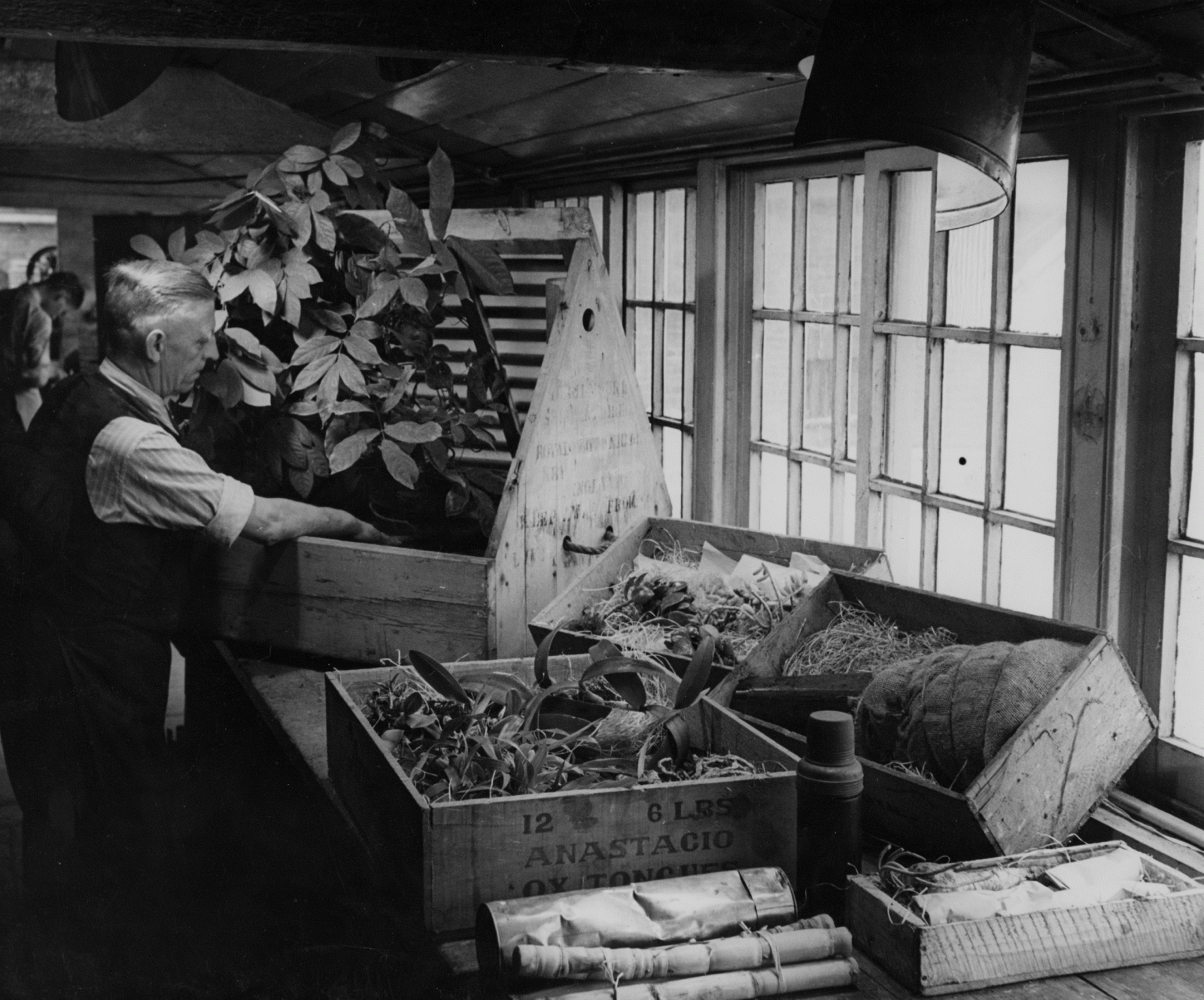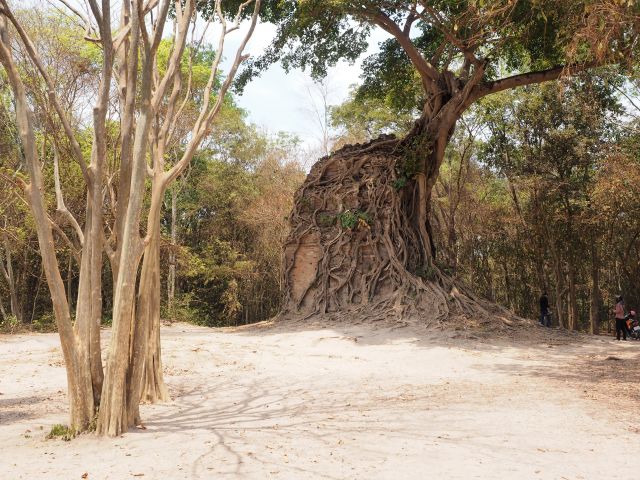4A Lab Seminar
Luke Keogh: The Wardian Case: Artefact of the Anthropocene

Wardian cases preparing to leave the Royal Botanic Gardens, Kew. © The Board of Trustees of the Royal Botanic Gardens, Kew
In 1829, the surgeon and amateur naturalist Nathanial Bagshaw Ward accidentally discovered that plants enclosed in airtight glass cases can survive for long periods without watering. The Wardian case, as it became known, revolutionised the movement of plants around the globe. After the first experiment, the cases were used for over a century. In the cases plants had greater chance of survival when in transit. Certainly a product of the gardening crazes of the Victorian era, the Wardian case is also an artefact of the Anthropocene. In this presentation Luke Keogh will delve into the global movement of plants in Wardian cases and describe how the Wardian case resolved a major bottleneck in the transport of live plant species, but also had major consequences for environmental relationships in the nineteenth and twentieth centuries.
Dr Luke Keogh is a curator and historian and fellow of the 4A Lab. His book The Wardian Case: How a Simple Box Moved Plants and Changed the World is published by the University of Chicago Press in Spring 2020.
29. Januar 2020, 17:00 Uhr
Staatliche Museen zu Berlin – Preußischer Kulturbesitz
Villa Gontard
Stauffenbergstraße 41
10785 Berlin
Hinweis
Diese Veranstaltung wird durch Fotografien und/oder Videoaufnahmen dokumentiert. Falls es nicht Ihre Zustimmung findet, dass das Kunsthistorische Institut in Florenz Aufnahmen, auf denen Sie erkennbar abgebildet sein könnten, für die Veranstaltungsdokumentation und Öffentlichkeitsarbeit (z.B. Social Media) verwendet, bitten wir um eine entsprechende Rückmeldung.



